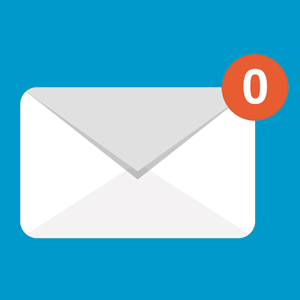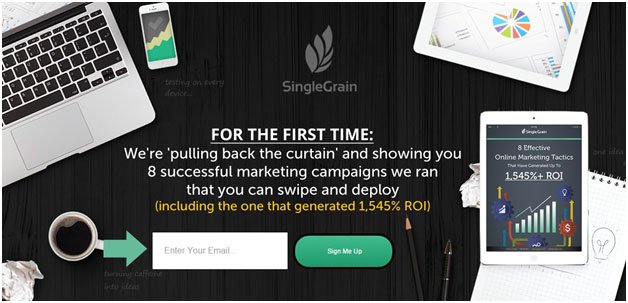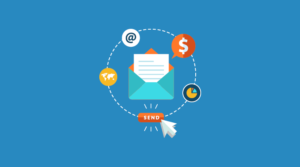Why Your Email List Has Zero Business Value (And What You Can Do About It)

When you’re building an online business or, more specifically, selling digital products like eBooks, video tutorials, email courses, webinars etc., one of your fundamental requirements is building an email list. You need people on your list so that you can build relationships, bring repeat traffic, and generate sales.
If you ask any expert for list building advice, he’ll recommend creating a freebie for your target audience and promoting it through your blog content, guest posts, and other marketing channels.
But what if I tell you that your email list has NO value for your business. You’re wasting time promoting your freebie and trying to get subscribers.
Shocked? Let me explain.
Understand the Objective of List Building
Why are you building an email list? What’s the purpose?
List building should be a part of your broader business strategy. It needs to add a certain value to your business. It is not the objective itself. Most blogs and businesses do just anything to attract subscribers – any subscribers.
They’re more concerned with the subscriber count as compared to the quality of their subscribers. Because of this, their list looks pretty fat from the outside but it actually has ZERO business value. It’s just a number.
And there’s a good chance you’re one of them.
The role of your email list in the broader business strategy is to attract the right prospects who can become paying customers in future. They should not only be interested in your services, but also have sufficient purchase power and the buying intention to become paid customers in future. Your list is a tool for qualifying potential customers. You don’t want freebie hunters as your subscribers because they’re never going to pay for your products/services no matter how valuable it is.
How To Create an Email List of Real Value
An email list is only as valuable as its subscribers. If the subscribers are relevant to your business, have the purchase power to buy your products and also have the buying intention then your list has real business value.
So to build a high value list, you need to attract the right subscribers and instill the buying intention in them from the very start.
How do you do that? Here’s the strategy that has always worked for me.
1. Create a Strategic Email Giveaway
Most people subscribe to email lists because of freebies. Bloggers and online businesses offer different eBooks, courses, tools, and discounts to lure people into their list.
To attract the right subscribers, you need to create the right freebie. Don’t treat it just as a list building incentive. Make it the first phase of your sales cycle and use it to qualify leads.
The best way to do this is by aligning your freebie with your paid products/services. You can do this by
- Offering a limited version of your paid product as a freebie. This will get you lots of subscribers, but all of them will know from the start that the real value is in the paid product.
- Offering a freebie that complements your paid product. For example, if you’re offering a paid email course, your freebie can be an outline of the course along with a cheat sheet to master the topic.
If you look closely, all the successful bloggers and online businesses align their freebie with their paid product. Here are a few examples.
Jon Morrow – On his blog, Guestblogging.com, Jon offers a paid course that teaches subscribers how to use the power of guest blogging to increase influence, get more traffic and subscribers, and attract more customers. His freebie is a simple cheat sheet that teaches people how to get their first 1000 subscribers.

Anyone who subscribes to Jon’s list, already knows that this is just a high level cheat sheet. To get the real valuable stuff from Jon, they need to pay him. This creates a buying intention in them from the very start.
Single Grain – Single Grain is a digital marketing agency run by entrepreneurs like Sujan Patel and Neil Patel. Both of them are huge influencers in the digital marketing niche and have several Fortune 500 hundred companies on their portfolio.
Look at their freebie

This freebie is so tempting, yet it only strengthens the brand image of this company, and convinces subscribers to become paying customers.
You can map this on your own business as well. For example,
- If you’re an SEO agency, your freebie can be a website SEO audit checklist.
- If you’re a copywriter, your freebie can be a cheat sheet to increasing conversions with effective copy.
- If your paid product is a webinar or an email course, your freebie can be a blueprint with all the high level details of the course.
- If you have a premium quality product, you can offer a limited time access to the email subscribers. You can implement it by using a membership WordPress plugin.
In all these examples, the subscribers you’ll get will not be freebie hunters. They’ll be highly targeted prospects who have the buying intention from the start.
2. Market Your Freebie With Facebook Ads
Facebook ads are almost like a traffic switch. The moment you turn it on, you’ll start getting traffic for very little money. In fact, purely on the basis of cost per acquisition, I find it the most profitable advertising channel.
You can use Facebook ads to accelerate the process of subscriber acquisition. You have the right freebie that is strategically aligned with your paid services. Now you need to spread the word and reach the right people with it.
All of your prospects are on Facebook (it has more than 1.5 billion users) so you just need to target them. Facebook ads have great targeting features. You can choose people on the basis of their likes, interests, demographics, activity, and many other factors.
You can read this post on configuring effective Facebook ads for more details on this topic.
Use this great source of traffic to build your list by promoting your freebie. The more targeted and high quality subscribers you have, the more valuable your list will become.
3. Nurture Leads with Automated Emails
Once you have the right subscribers on your list, you just need to nurture them to trigger sales and make them purchase your paid product. This can be done by using a series of automated emails. In my experience, the following combination works the best
- The Hello Email – This email is about building confidence with your new subscriber and reassuring him that he made the right decision by signing up.
- The Storytelling Email – This email shares a success story of one of your previous customers. Highlight how he faced problems similar to your subscriber, but your product helped him find the right solution. Add a link to your product sales landing page at the end of the email.
- The Sales Email – This email puts forward a clear sales offer. You list the benefits and advantages of your product and offer a special price.
- The Scary Email – You scare the subscriber by telling him what he’s missing out on. Offer a special discount with a 36 hour deadline.
- The Final Nudge – Send an exclusive offer one last time with a 12 hour deadline.
This combination has worked well for me. But you can increase or decrease the number of emails according to your needs. You can set up an auto responder sequence by using MailChimp or Aweber. Both these services charge a small fee for the auto-responder feature. If you’re looking for free options, you can check out SendinBlue. It offers email marketing and auto responder services for free with a limit of 9000 emails/month in the free version.
Conclusion
Email lists are an asset for any online business. But in order to make them truly valuable, you need to clearly define their role in your overall strategy. Focus on attracting the right subscribers, the ones who’re in need of your product and have the buying intention. Attract them by creating a strategically designed freebie and by marketing it using targeted Facebook ads. Nurture and convert them into paying customers by the power of persuasion driven email copy. If you follow this sequence, you can drive immense value from your email subscribers
 Comparing GetResponse and Infusionsoft: What They Have to Offer for Marketing Your Blog
Comparing GetResponse and Infusionsoft: What They Have to Offer for Marketing Your Blog 3 Ways to Use Pokemon Go to Market Your Business
3 Ways to Use Pokemon Go to Market Your Business Build a Profitable Blog by Following Just One Simple Strategy
Build a Profitable Blog by Following Just One Simple Strategy 12 Ways How to Write Content That Generates Readers and Improves Sales
12 Ways How to Write Content That Generates Readers and Improves Sales